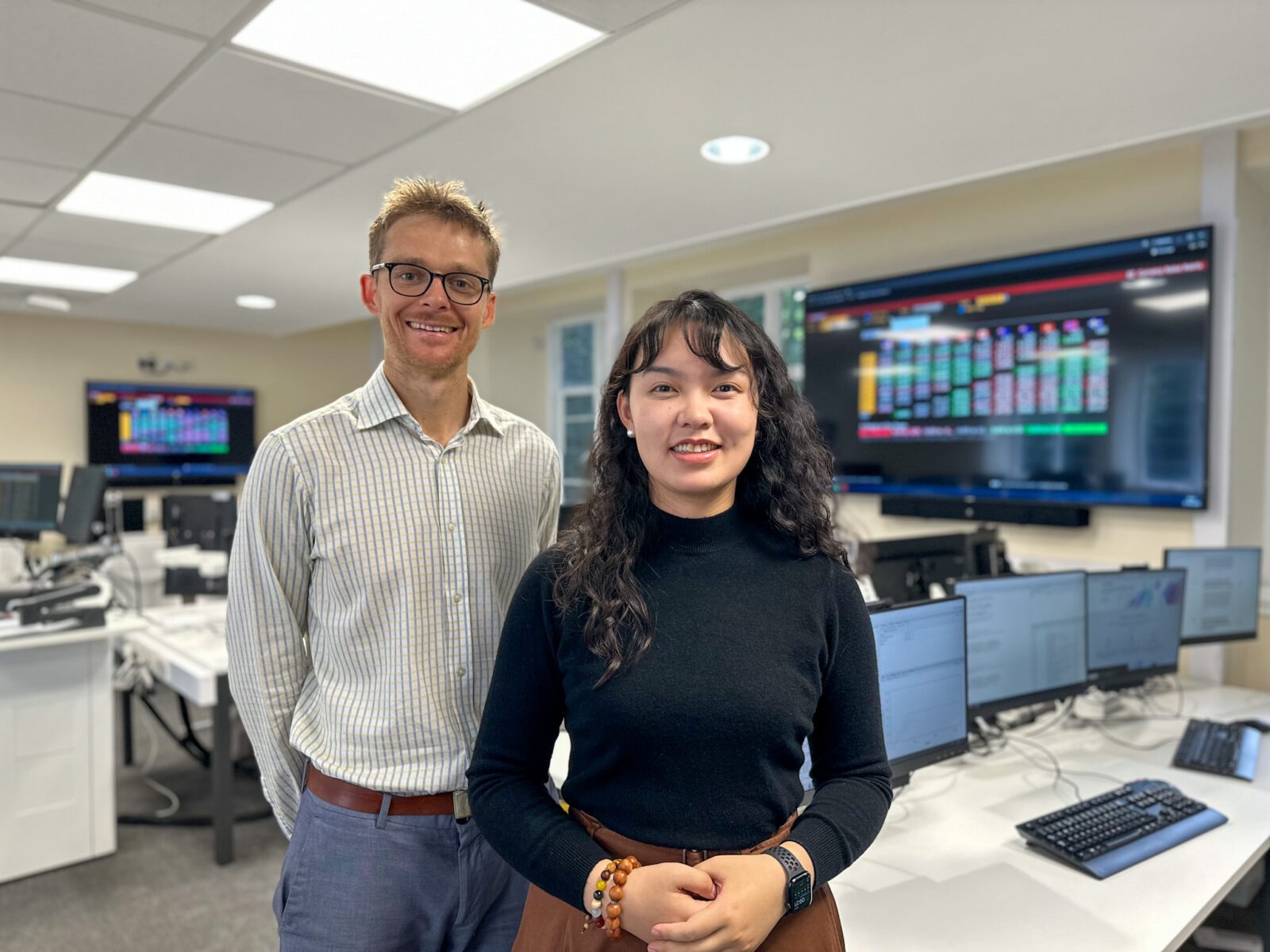Bangor Business School is empowering businesses and students with the launch of a new data analytics programme designed to provide industry with graduates that understand how to analyse and present the data they as organisations collect.
In the recent Future of Jobs Report 2023 by the World Economic Forum, data analysts were rated sixth in the top 10 fastest-growing jobs, and a report by The Royal Society pointed to a skills shortage in this area, calling for action in equipping young people with data science knowledge and skills and in terms of advancing professional skills and nurturing talent.
In 2021, Careers site CareerCast.com cited ‘Data Scientist’ as their No.1 rated profession, thanks to the way the COVID-19 pandemic served to accelerate the shift of consumers from physical stores to web-and-app-based options: “With millions of customers using these products, Statisticians, Mathematicians and Data Scientists with the know-how to interpret the trends of shoppers are in ever-growing demand.” CareerCast.com also reported that “the exponential proliferation of blockchain technology has created a booming new sector within the larger blanket profession of data analysis.”
Industry professionals will discuss the exponential growth in this field at an event to launch Bangor University’s new programmes in data analytics on Wednesday 27 September between 3-5pm at Bangor University.
Mike Hawkes from analytics company Capventis, who will be a panel member at the event said:
“Every click, transaction, measure and interaction generates an unprecedented volume of data. The fabric of our business landscape is undergoing a profound transformation: data has become the lifeblood of modern enterprises, and a noticeable and disconcerting gap has emerged – a shortage of individuals equipped to analyse business data.
“This gap is a palpable challenge at every level of a modern enterprise. The shortage of professionals proficient in harnessing the power of data for strategic insights and informed decision-making casts a shadow over the potential of countless organisations. As competition intensifies, and markets evolve at an unprecedented rate, the significance of data analytics skills becomes increasingly evident. These skills empower businesses to extract meaningful patterns from seemingly chaotic data streams, to identify trends that drive customer preferences, and to optimise operations with (previously unimaginable) precision.”
Dr Adrian Gepp, Professor in Data Analytics who has recently joined Bangor Business School said:
“In a modern business, it’s not sufficient to ‘crunch the numbers’. You need to understand how businesses work, how to model data using the latest advanced tools and programming languages, and how to communicate your insights back into the business to improve decision making and make meaningful change. By studying data analytics here, students will acquire both technical data analysis skills and business acumen. They will also develop an ability to apply their advanced modelling skills and communicate their findings to solve a broad range of business problems across sectors from finance, marketing to health and government.”
Amanda Yee, a former student of Dr Adrian Gepp in Australia now working in data analytics in New York said:
“When I was looking to switch jobs, there was no shortage of job postings in the data analytics and data science space, and I think it’s because companies have recently realised that they’re sitting on this immense amount of data and there’s a lot of value in it to make important business decisions and we’re the ones who can drive a lot of that decision-making through our analysis.
Back when I was studying, I was a little uncertain what I wanted to study, but if I could go back in time I would still choose business data analytics because I’m not sure I would have got these career opportunities and had the chance to live in a city like New York if I hadn’t done this degree.”
Mujahid Rasul, 2022 graduate of the MBA in Banking & Finance at Bangor University and now an investment analyst in London added:
“This initiative is the right move in terms of coming closer to the needs of employers in this age of technology revolution. Data Analytics is becoming a most desirable skill to have for the business and finance graduates. Firms who are focussed on data-driven business techniques are ahead of the game and they need graduates who are skilful in data analytics. Right from the start of one’s career, employers start testing employees to find out how good they are in data analytics.”
Michael Wilson, Head of Materials Management and Logistics at Siemens Healthineers in Llanberis, north Wales said:
“The use of data is becoming more and more prevalent, within both our personal and working lives, and with easy access to this data and the development of low code digital automation solutions now widely available, it is no longer the prerogative of highly specialized data professional only. If you have the right mindset and desire, this is a career that it is open to you.”








Leave a Reply
View Comments